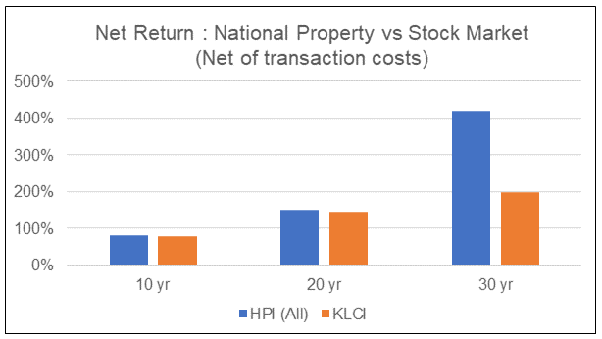
Among the many functions of the Securities and Exchange Commission (SEC), it has the responsibility of protecting investors and their investment interests. The federal government has an independent commission that oversees the US stock market and other securities markets. It can investigate and prosecute violations to securities laws.
SEC's mission, to promote fair, transparent and efficient capital market and protect investors against fraud, abuse and market manipulation is its goal. It is responsible for all aspects of the United States stock exchange and facilitates capital investments. It acts as an administrative tribunal and provides information to investors. In addition to its functions, the commission conducts research as well as audits.
There are several divisions in the Commission that manage its operations. It has a division that investigates or prosecutes cases and a division that trades and markets, which handles its day-today operations. A division of investment administration regulates various investment firms as well as advisors.

The SEC also maintains a Division of Risk and Economic Analysis. It helps maintain a fair and organized securities market. The SEC maintains an online database called EDGAR where investors can submit complaints or tips. EDGAR can also accept evidence of violations to securities laws. The Justice Department also collaborates with the commission to prosecute criminal cases related to securities law violations.
The Commission works closely with the Securities and Exchange Commission Act. This Act was established by Congress in 1934 to create a statutory body that governs the securities market. The SEC supervises more than 600,000. It has the power to investigate, prosecute and settle securities law violations. It is responsible for registering securities market intermediaries as well as businesses.
In addition, the SEC has been working to improve the primary market and secondary market. 2006 saw 86.7% of all complaints being resolved. This is a marked improvement on 2005, when only 5% were reported. The SEC is responsible for regulating securities law violations. It also collaborates with the Justice Department in prosecuting and settling criminal cases.
SEC has been working hard to improve its internal controls and information security capabilities. The SEC is moving quickly to the cloud. New technologies are being used to improve its operation. The technology gives the commission the ability to gain new insights and provide more value to the public. It will also help the SEC increase its capabilities in risk management, security and availability. It will also help the SEC better detect and prevent fraud.

New technologies are changing capital markets. These technologies enable new players to enter the market and reduce transaction costs. New business models and financial products are also being introduced to the markets. Additionally, the SEC must keep up with new technologies that are putting increased demands on its resources. To keep up with these new developments, the SEC must continue to use new technology.
FAQ
How are securities traded?
The stock market allows investors to buy shares of companies and receive money. To raise capital, companies issue shares and then sell them to investors. When investors decide to reap the benefits of owning company assets, they sell the shares back to them.
Supply and Demand determine the price at which stocks trade in open market. When there are fewer buyers than sellers, the price goes up; when there are more buyers than sellers, the prices go down.
You can trade stocks in one of two ways.
-
Directly from your company
-
Through a broker
What Is a Stock Exchange?
Companies can sell shares on a stock exchange. This allows investors and others to buy shares in the company. The price of the share is set by the market. It is usually based on how much people are willing to pay for the company.
Stock exchanges also help companies raise money from investors. To help companies grow, investors invest money. Investors purchase shares in the company. Companies use their money for expansion and funding of their projects.
Stock exchanges can offer many types of shares. Some are known simply as ordinary shares. These are the most commonly traded shares. Ordinary shares can be traded on the open markets. Shares are traded at prices determined by supply and demand.
Preferred shares and bonds are two types of shares. When dividends become due, preferred shares will be given preference over other shares. These bonds are issued by the company and must be repaid.
Can bonds be traded
The answer is yes, they are! You can trade bonds on exchanges like shares. They have been doing so for many decades.
The difference between them is the fact that you cannot buy a bonds directly from the issuer. You must go through a broker who buys them on your behalf.
This makes buying bonds easier because there are fewer intermediaries involved. This also means that if you want to sell a bond, you must find someone willing to buy it from you.
There are many different types of bonds. Some bonds pay interest at regular intervals and others do not.
Some pay interest every quarter, while some pay it annually. These differences allow bonds to be easily compared.
Bonds are great for investing. In other words, PS10,000 could be invested in a savings account to earn 0.75% annually. You would earn 12.5% per annum if you put the same amount into a 10-year government bond.
You could get a higher return if you invested all these investments in a portfolio.
How does inflation affect the stock market?
Inflation affects the stock markets because investors must pay more each year to buy goods and services. As prices rise, stocks fall. Stocks fall as a result.
What are the benefits of stock ownership?
Stocks have a higher volatility than bonds. When a company goes bankrupt, the value of its shares will fall dramatically.
But, shares will increase if the company grows.
In order to raise capital, companies usually issue new shares. This allows investors the opportunity to purchase more shares.
Companies borrow money using debt finance. This allows them to borrow money cheaply, which allows them more growth.
A company that makes a good product is more likely to be bought by people. Stock prices rise with increased demand.
The stock price should increase as long the company produces the products people want.
How can someone lose money in stock markets?
Stock market is not a place to make money buying high and selling low. It is a place where you can make money by selling high and buying low.
The stock market is for those who are willing to take chances. They are willing to sell stocks when they believe they are too expensive and buy stocks at a price they don't think is fair.
They expect to make money from the market's fluctuations. They could lose their entire investment if they fail to be vigilant.
What is a REIT and what are its benefits?
A real estate investment trust (REIT) is an entity that owns income-producing properties such as apartment buildings, shopping centers, office buildings, hotels, industrial parks, etc. They are publicly traded companies which pay dividends to shareholders rather than corporate taxes.
They are similar companies, but they own only property and do not manufacture goods.
Statistics
- The S&P 500 has grown about 10.5% per year since its establishment in the 1920s. (investopedia.com)
- Ratchet down that 10% if you don't yet have a healthy emergency fund and 10% to 15% of your income funneled into a retirement savings account. (nerdwallet.com)
- For instance, an individual or entity that owns 100,000 shares of a company with one million outstanding shares would have a 10% ownership stake. (investopedia.com)
- "If all of your money's in one stock, you could potentially lose 50% of it overnight," Moore says. (nerdwallet.com)
External Links
How To
How do I invest in bonds
An investment fund is called a bond. The interest rates are low, but they pay you back at regular intervals. You make money over time by this method.
There are many ways to invest in bonds.
-
Directly buying individual bonds.
-
Buy shares of a bond funds
-
Investing via a broker/bank
-
Investing through a financial institution
-
Investing via a pension plan
-
Invest directly through a broker.
-
Investing through a mutual fund.
-
Investing through a unit-trust
-
Investing with a life insurance policy
-
Investing through a private equity fund.
-
Investing with an index-linked mutual fund
-
Investing through a Hedge Fund